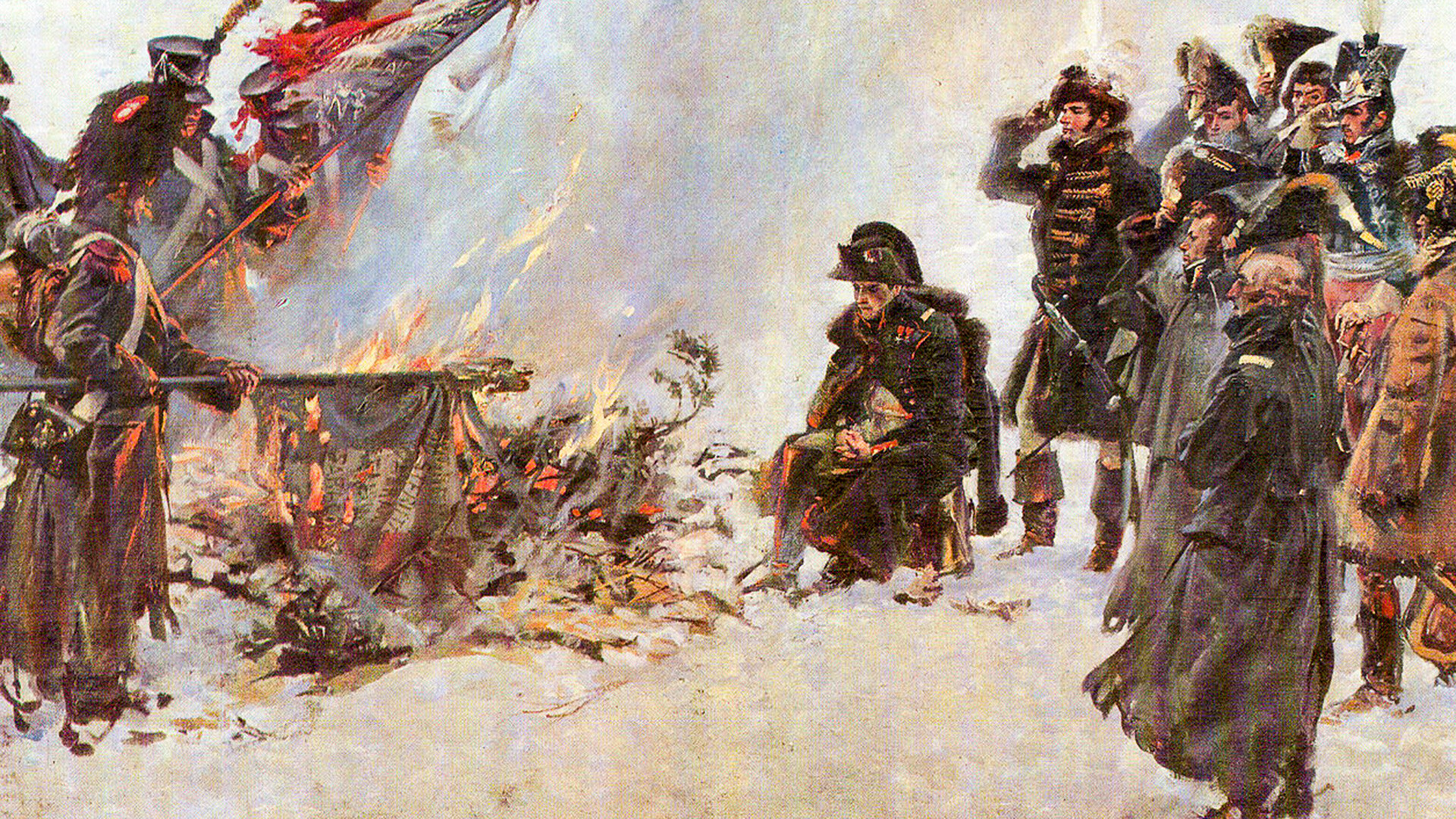
Burning of Standarts before Napoleon.
Wojciech Kossak/Muzeum Śląska Opolskiego w Opolu‘Bérézina’ - in French, this word means complete failure and catastrophe. It was on the Berezina River in November 1812 that Napoleon's ‘Great Army’ perished as it fled from Russia.
The Russians had a good chance of capturing the emperor himself and stopping the war in Europe, but this never happened. Why?
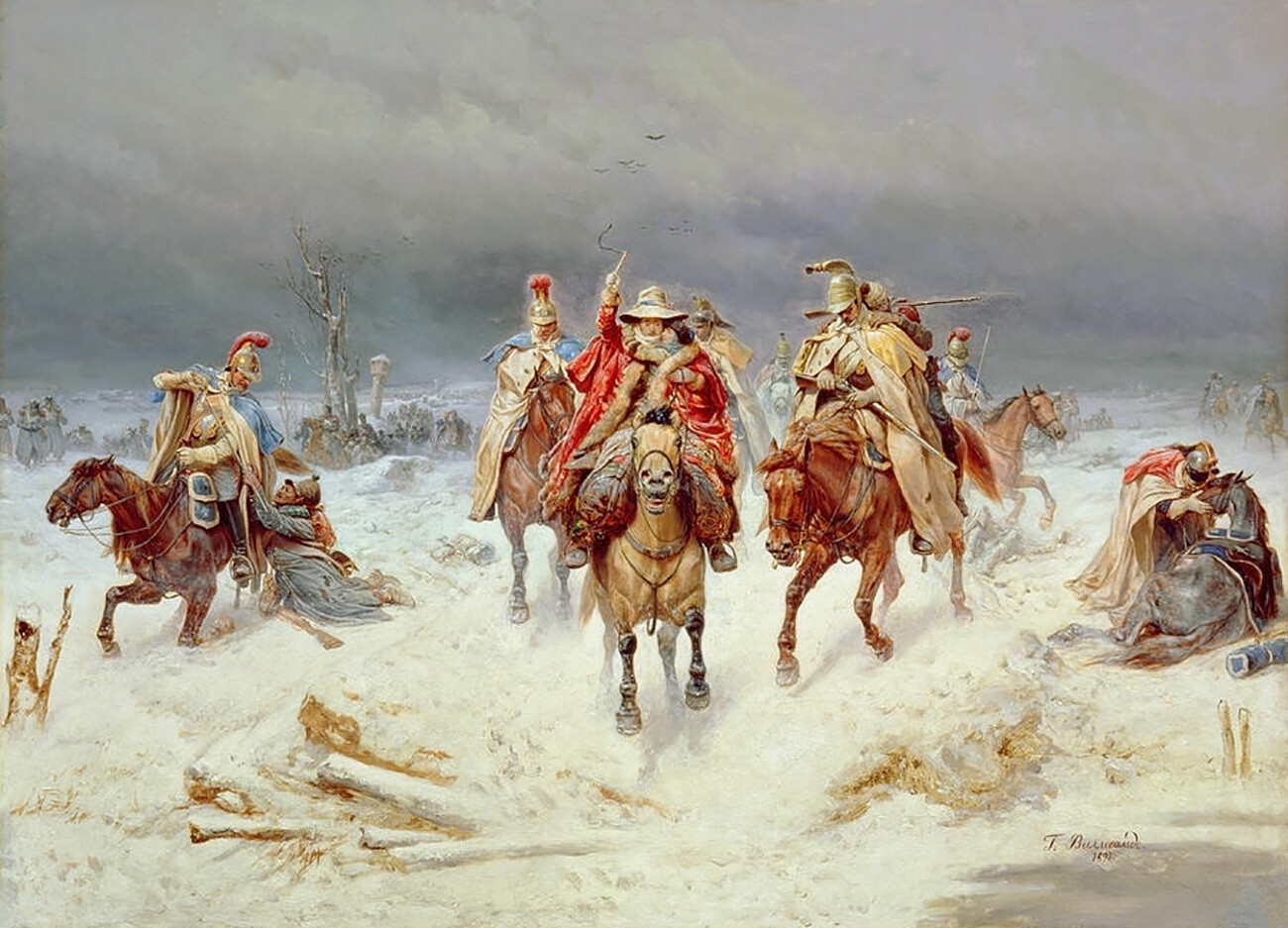
On the eve of winter, the once "Great" Army presented a very pitiful sight. Of the half million soldiers, only about 40,000 remained in service and, with them - tens of thousands of wounded soldiers and various kinds of non-combatants.
The French tried with all their might to break out of the inhospitable country or, at least, to reach the Lithuanian lands of the Russian Empire, where they could count on some support from the local population. However, the Berezina River lay in their path.
On the heels of the French army was the main Russian army, led by Commander-in-Chief Field Marshal Mikhail Kutuzov. The Danube Army of Admiral Pavel Chichagov, meanwhile, was approaching from the south and the army of Peter Wittgenstein from the north.
The Russian troops intended to encircle the enemy, cutting off its escape routes across the river. On November 16, Chichagov occupied Minsk and, on November 21, Borisov on the Berezina River, where Napoleon planned to organize a crossing.
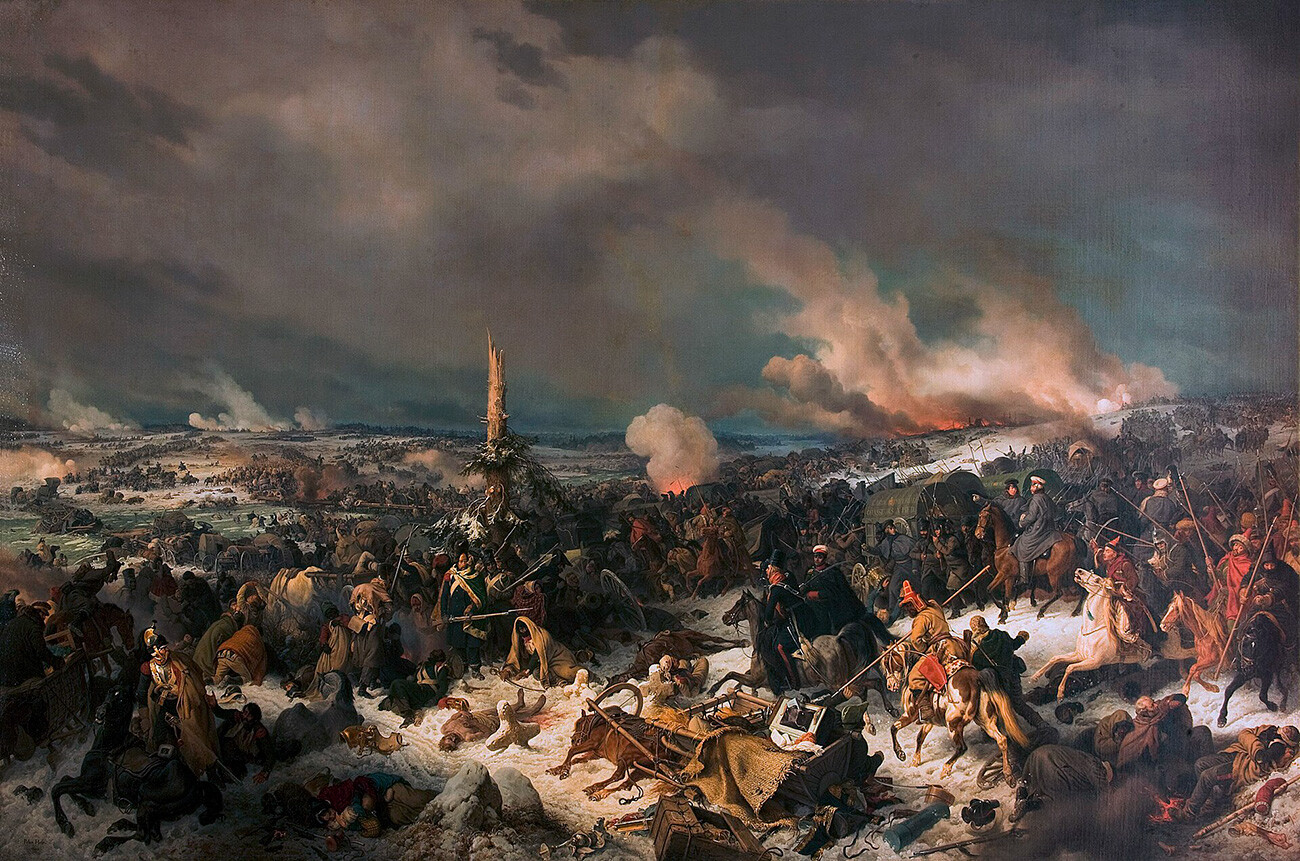
The corps of Marshal Nicolas Oudinot, one of the most combat-ready formations in the French army, immediately headed for the city. Having overestimated the enemy's strength, Chichagov left Borisov and crossed to the western bank, destroying the crossing along the way.
Soon, the French emperor himself approached Borisov with his main forces. He faced a difficult task - to cross to the other bank, occupied by Russian troops.
Napoleon resorted to trickery. On his orders, the troops began to demonstratively establish pontoon bridges south of Borisov, while the real crossing was to be prepared north of the city in the area of the ford near the village of Studyanka.
Chichagov took the bait and headed down the river with his main forces, leaving only a small barrier near Studyanka. Some of the French immediately crossed the ford and dispersed these small forces, while others began to build two crossings.
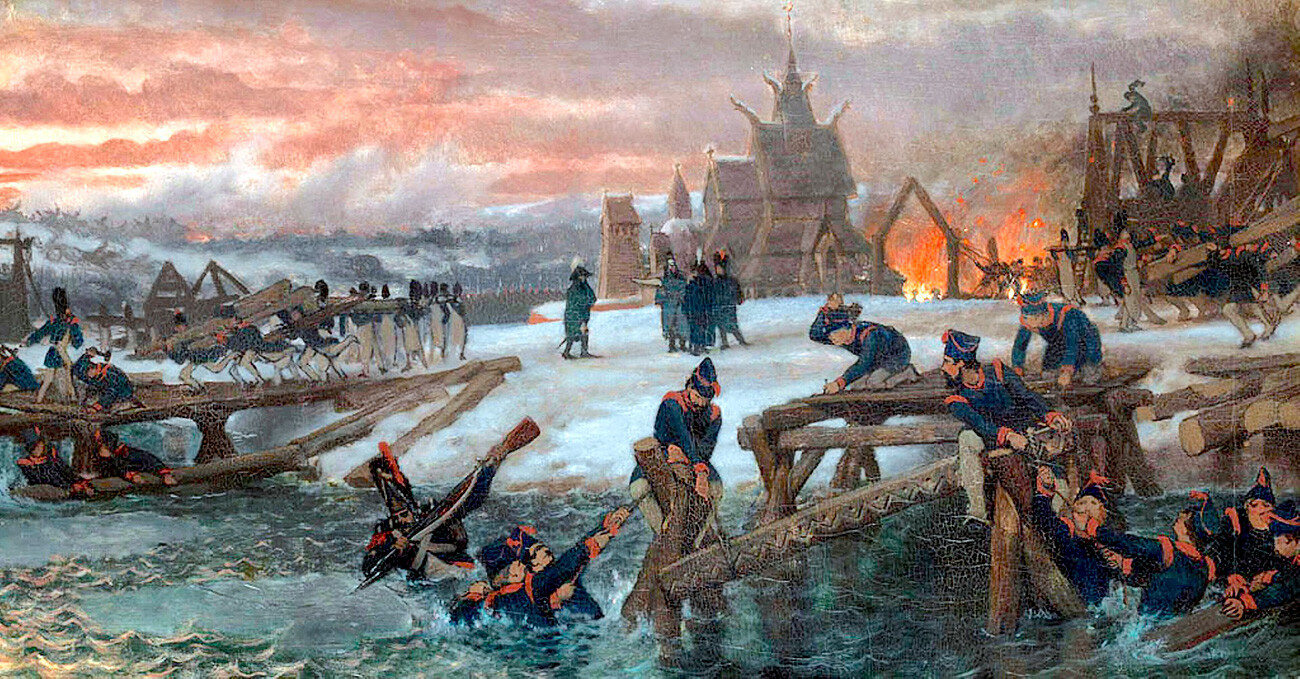
Colonel Marcellin Marbot recalled the work of the pontooners: "These brave soldiers showed absolutely exceptional selflessness… They threw themselves naked into the cold water of the Berezina and worked in it continuously for 6-7 hours and there was not a drop of vodka to give them and, instead of a bed at night, they had to use a field covered with snow. Therefore, with the onset of severe cold, almost all of them perished."
On the evening of November 26, the most combat-ready French troops began to cross to the western bank along the established crossings - Oudinot's corps and parts of Marshal Claude-Victor Perrin's corps, the Old and Young Guards. A total of about 19,000 men.
The next day, Kutuzov and Wittgenstein's troops defeated General Louis Partuno's division in the Borisov area and moved toward Studyanka. Chichagov, deceived by Napoleon, also rushed there along the other bank.
On November 28, fierce battles raged on both banks of the Berezina River. The French suffered heavy losses, but did not allow the Russian troops to approach the crossings until the evening.
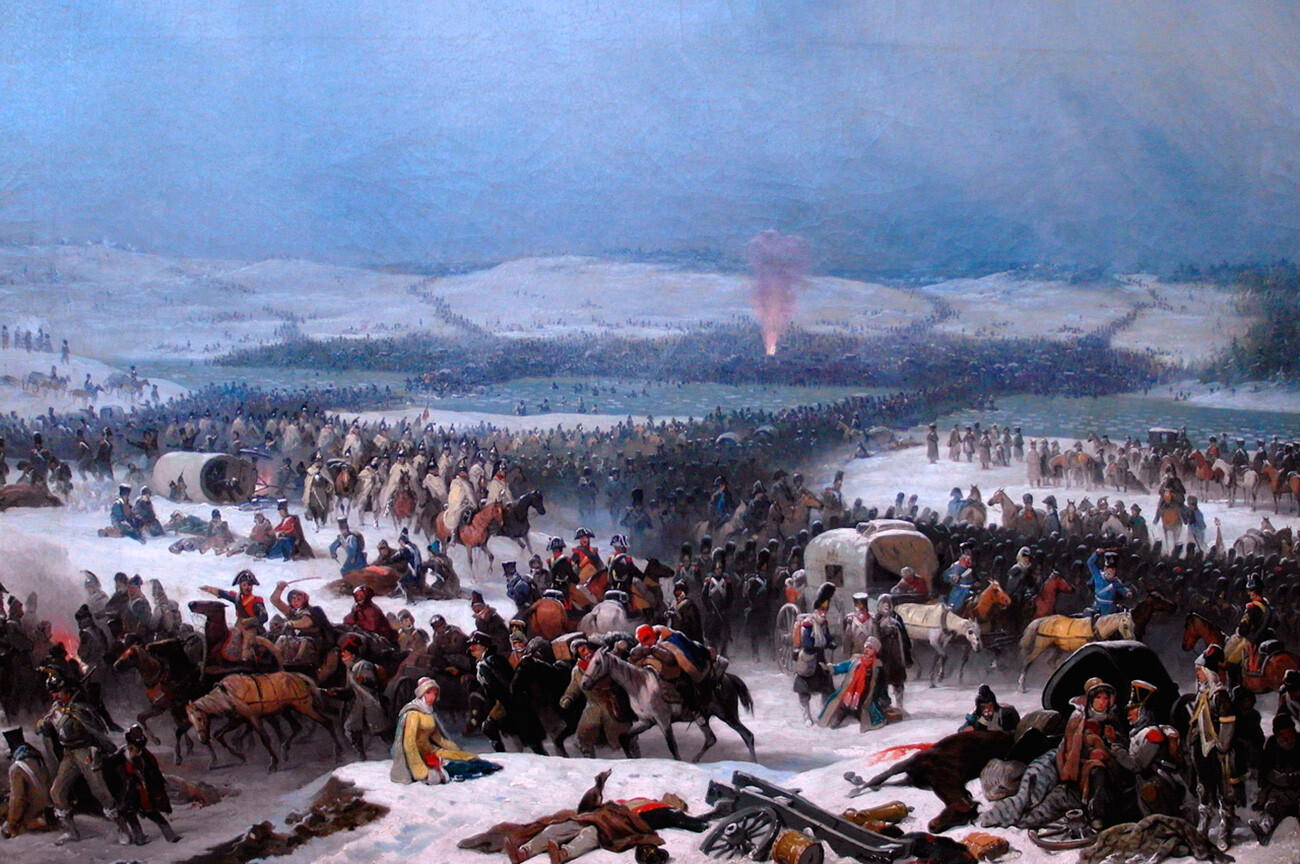
When Russian artillery began to work on the French concentrations on the bank, chaos and panic spread among the latter, which very soon led to a crush. "What could be more terrible than what you experience when you walk on living creatures that cling to your legs, stop you and try to get up," wrote Karl-Friedrich von Succow, an officer from Marshal Ney's corps.
On the morning of November 29, the French who had crossed then burned the crossing, abandoning the wagon train and thousands of their comrades to their fate. Soon, the Cossacks from Wittgenstein's army attacked the stragglers.
The data on the French losses in the ‘Battle on the Berezina’ vary. The number of killed, captured, missing and drowned in the river is estimated at about 50,000. The Russians lost about 8,000.
Afterwards, the ‘Great Army’ ceased to exist as an organized force. At the same time, Napoleon managed to escape from the trap and retained part of his troops, with whom he reached Vilno (current day Vilnius).
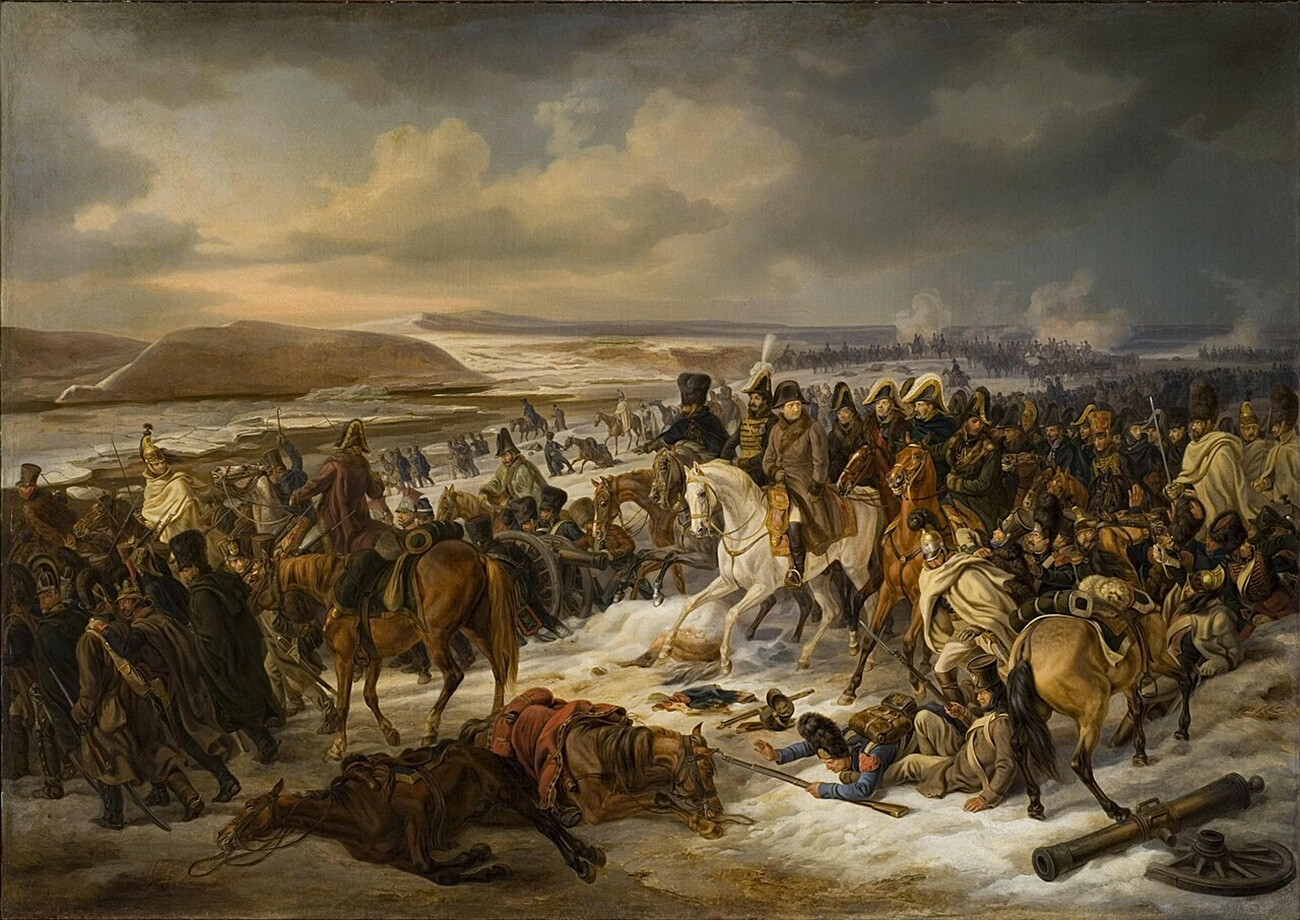
There, the emperor left his soldiers and went on to Paris to gather a new army. Having won an impressive victory on the Berezina River, the Russians, however, missed the chance to capture Napoleon and end the hostilities.
This meant that Europe faced several more years of bloody war.
If using any of Russia Beyond's content, partly or in full, always provide an active hyperlink to the original material.
Subscribe
to our newsletter!
Get the week's best stories straight to your inbox